Environment, Energy, and Climate Change
Climate change disproportionately affects people living in poverty and threatens to reverse decades of progress in global poverty alleviation. However, there is a critical lack of research on the real-world impacts of climate solutions. Leaders around the world need more evidence on the effectiveness of technological and policy innovations to implement solutions that address climate change and poverty.
In addition to supporting policymakers in applying evidence from randomized evaluations to their work, sector chairs and staff write policy insights that synthesize general lessons emerging from the research, condense results from evaluations in policy publications and evaluation summaries.
In 2020, in partnership with King Philanthropies, J-PAL launched the King Climate Action Initiative (K-CAI), our flagship program to vastly expand work on climate change across J-PAL worldwide. Through K-CAI, J-PAL innovates, tests, and scales high-impact solutions at the nexus of climate change and poverty alleviation with governments, NGOs, donors, and companies worldwide.
J-PAL has expanded K-CAI’s work through the Air and Water Labs with Community Jameel. Embedded in partner government agencies, the labs address water scarcity and worsening air and water quality in Africa, the Middle East and North Africa, and South Asia.

File: Policy publication
Wood Burning: Improving Pollution Awareness
In France, general information on the air pollution caused by wood burning, coupled with personalized information on individual households’ air quality, improved households’ awareness of pollution and reduced indoor air pollution levels.
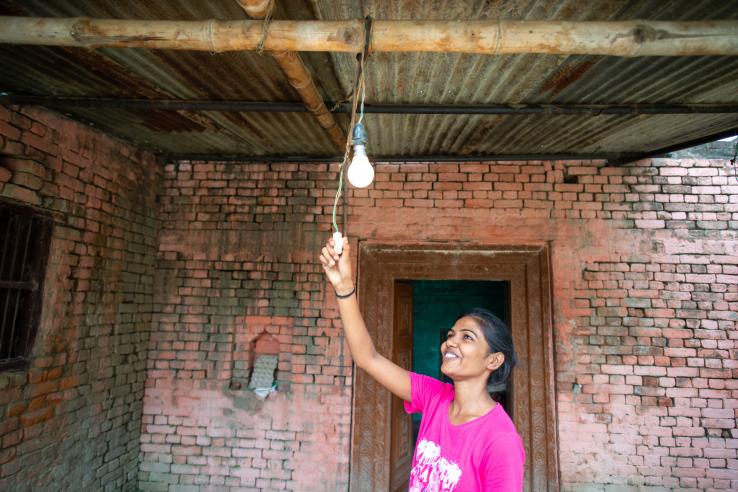
Policy insight
Expanding household electricity access
Access to electricity is a critical ingredient in improving human well-being and raising living standards, but the existing evidence suggests that it is just one component of poverty reduction rather than a complete solution on its own.
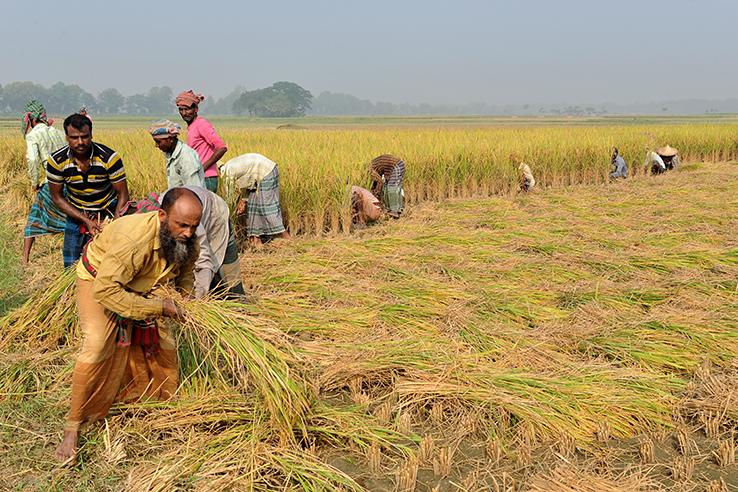
Policy insight
Building farmers' resilience to climate change
In the face of weather shocks, improved agricultural technologies and techniques, financial services, and social assistance programs can improve the resilience of small-scale farmers. These tools can help farmers prevent crop losses, avoid consumption cuts or sales of productive assets, or even...
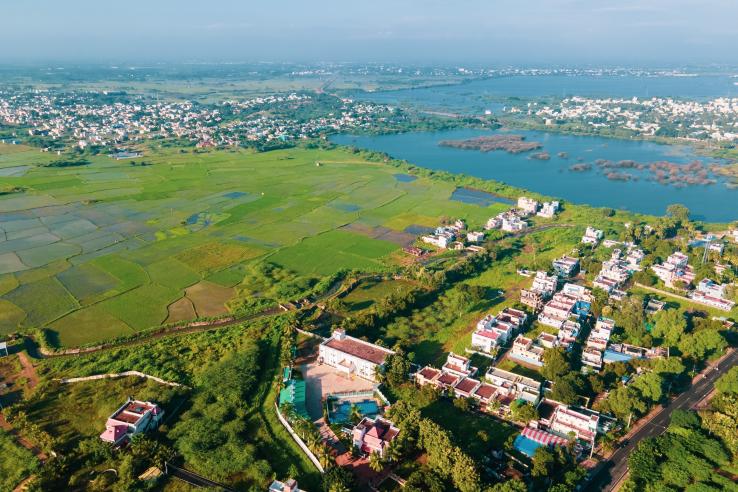
Blog
New resource: Incorporating remote sensing data into randomized evaluations
A growing number of economists are incorporating remotely sensed (RS) data—satellite data in particular—into their studies. For randomized evaluations, remote data collection offers alluring possibilities: lower data collection costs, a longer time series of data both before and after an...
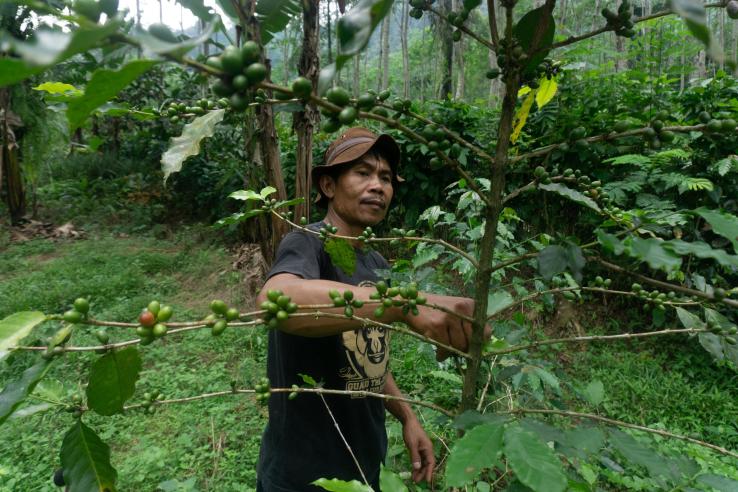
Blog
Growing evidence-informed climate policy: Five scaling stories from the King Climate Action Initiative
J-PAL’s King Climate Action Initiative (K-CAI) supports pilot studies, randomized evaluations, and scaling projects at the nexus of climate change and poverty alleviation. Three years ago, the initiative concluded its first funding competition. Since then, K-CAI has generated evidence that has...

In the news
Here’s a realistic path to protecting the Amazon rainforest
As trees disappear, the Amazon’s ability to return moisture to the atmosphere declines, leading to less rainfall, higher temperatures and a dry forest. Unless levels of deforestation drop dramatically, this feedback loop could transform over half of the Amazon into savanna within decades.

In the news
Looking for hope on the climate? Look here.
After a summer of climate-related disasters, the latest report from the U.N. Framework Convention on Climate Change is a dire warning for the world. The planet faces a “rapidly narrowing window” to avert catastrophic levels of warming.
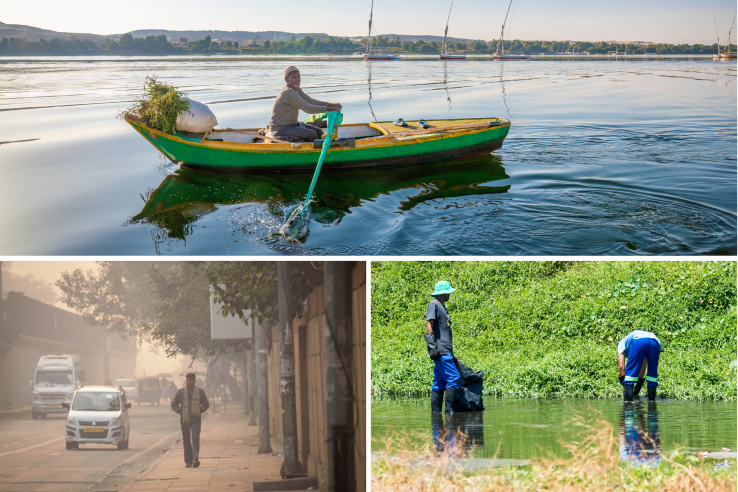
J-PAL updates
J-PAL and Community Jameel launch Air and Water Labs in Egypt, India, and South Africa
The Abdul Latif Jameel Poverty Action Lab (J-PAL) will launch the Air and Water Labs, with support from Community Jameel, to generate evidence-based solutions aimed at increasing access to clean air and water. Led by J-PAL’s Africa, Middle East and North Africa (MENA), and South Asia regional offices, the labs will partner with government agencies to bring together researchers and policymakers in areas where impactful clean air and water solutions are most urgently needed.
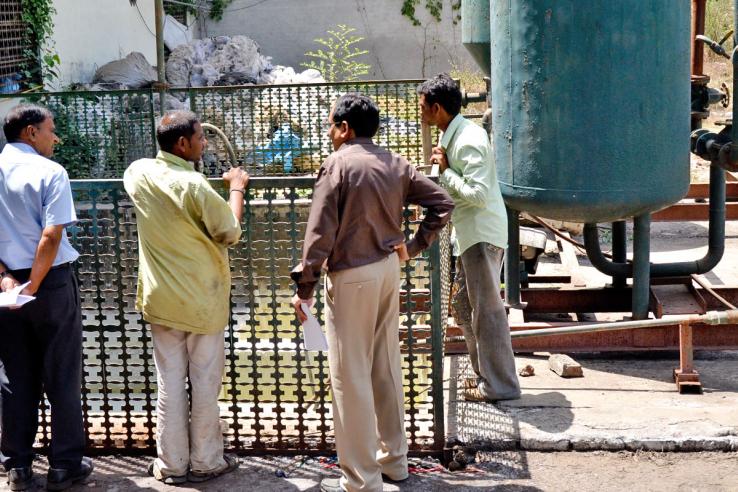
Case study
Strengthening third-party audits to reduce pollution
Evidence from a randomized evaluation informed the scale-up of a pollution audit policy in Gujarat, India.




